With support from Accessibility Services, Carrie Bueckert achieves lifelong goal of a university degree, and now supports other AU students
When Carrie Bueckert (Bachelor of Arts ’25) walks across the Athabasca University convocation stage, it will be testament to her determination and what’s possible when access and opportunity are the foundation of education.
Bueckert started her post-secondary journey in Regina, Sask., in the early 1990s, but life took her in a different direction before she could finish. Nearly 35 years later, she’s graduating with a bachelor’s degree from AU with a major in psychology and a minor in inclusive education.
Her journey has taken her across multiple provinces, through many life stages, and included overcoming more than a few obstacles.
“I always wanted to go back to school and finish my degree. It was always important—I needed to know that I could do it,” she says. After studying for two and a half years, Bueckert paused her psychology degree at the University of Regina to follow a calling—she moved from Regina, Sask., to Saskatoon, Sask., to attend bible college. There she met her husband, married, and within five years they were raising three children.
Life was full. Bueckert balanced parenting with part-time jobs, including a meaningful period as a childbirth educator and doula, working primarily in the inner city and with low-income communities.
“I did that for about 12 years,” she says. “The money wasn’t great, but it wasn’t about the money. It was about supporting women, many of them in vulnerable situations.”
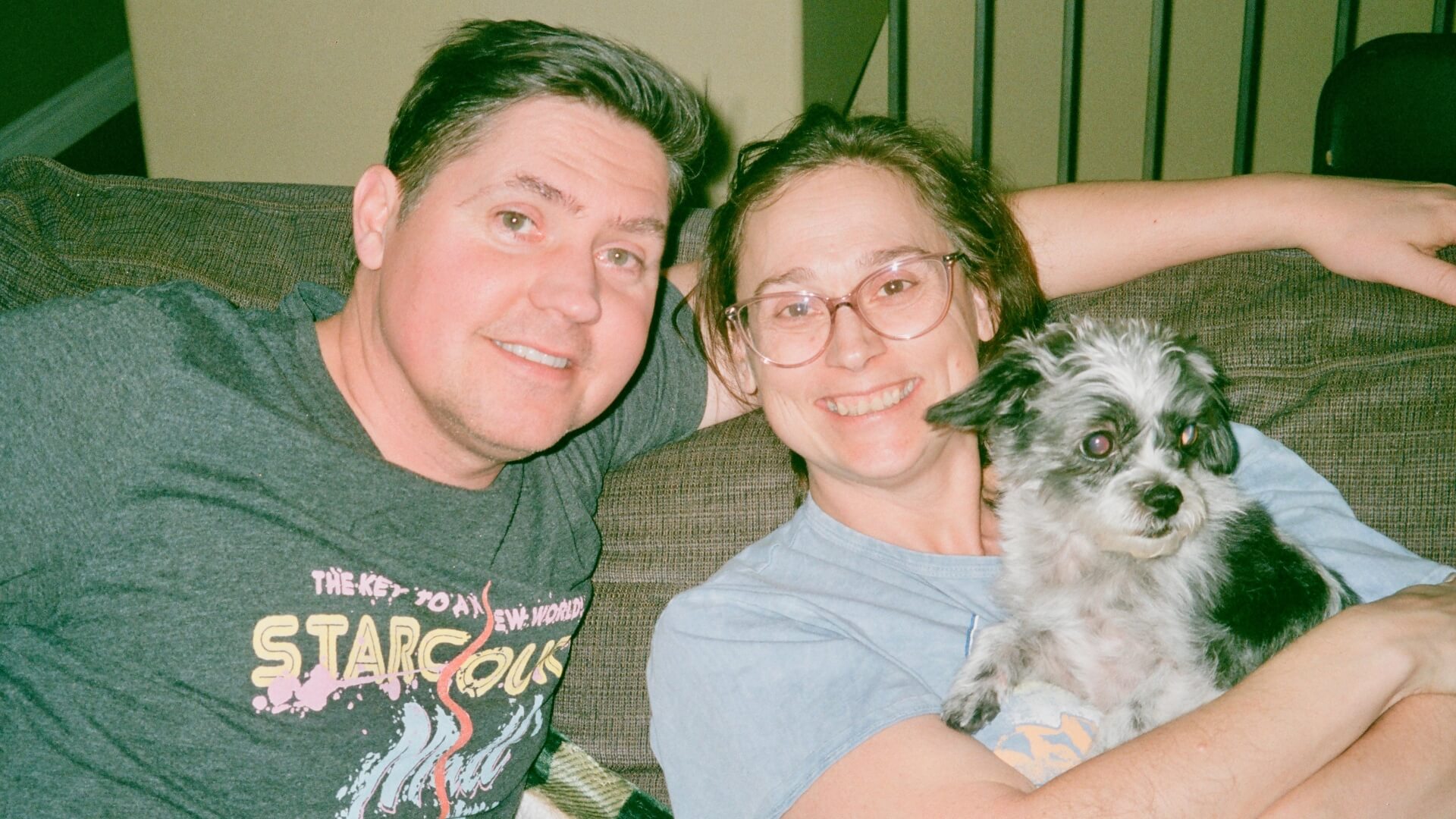
A new chapter—and new challenges
In 2016, more than two decades after pausing her studies, Bueckert decided to return to school. When the local university wouldn’t accept her past credits, she found AU—and fewer barriers to entry.
“AU accepted all my credits, and I started with just one class so I could balance working, volunteering with our church youth ministry, and raising three kids.”
In these early AU days, Bueckert was working part time as a first aid instructor. During training, her supervisor noticed that Bueckert was frequently reversing instructions. She would follow directions but as a mirror image or flipped. For example, she’d position the fabric for a sling over instead of under or place the stethoscope above instead of below.
Her supervisor encouraged Bueckert to get tested for learning disabilities.
“I went home and cried. It was hard to hear,” she remembers. “I knew I knew my stuff. I just couldn’t process it.”
Some of us just take more time to learn certain concepts.
A few years earlier, her middle child, India, had been struggling in school and was diagnosed with dyslexia and cognitive processing challenges.
“India would come home from school, and I worked with her every night, teaching her different skills,” says Bueckert. "She was very smart; she just needed to be taught differently to understand the information.”
Bueckert has similar difficulties, and her psychological education assessment confirmed her suspicions. Testing revealed she had attention-deficit/hyperactivity disorder (ADHD), slower cognitive processing, and, to her surprise, dyslexia.
As a kid, she did well with reading but “just wasn’t smart” when it came to numbers. Now she understands why she struggles with math and reading maps, graphs, and charts.
Support makes the difference
Her diagnosis brought clarity—and options to support her learning. With help from AU’s Accessibility Services, she began receiving tailored accommodations. She saw results almost immediately.
“Once I had that assessment and started getting some accommodations to adapt to what I needed and how I learn, I’ve gone from getting Cs to graduating with distinction.”
A turning point came during Math 215, a mandatory statistics course. She didn’t yet have any accommodations in place, and her first mid-term exam was a disaster. She completed well less than half of the exam in the allotted time and scored only 26%.
She turned to a friend for help. He owned a math tutoring company for children and connected Bueckert with an amazing tutor. “It was so weird—here I was sitting in a room with a bunch of Grade 6 kids and David would help them and then come over and help me.”
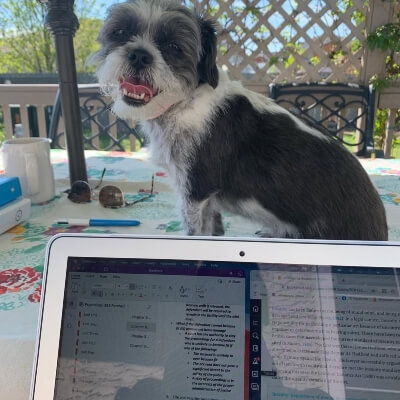
After receiving an accommodation for extra exam time, and through sheer persistence, she completed the course 10 months later.
“I got an A in the end, but I never worked so hard in a class as I did on that one,” she says. “I realized how much accommodations helped me. And realized that if I can push through then I can do a lot more than I think I can.”
Bueckert’s other accommodations have included extended time for quizzes, alternate assessments, alternate format course materials, and a reduced courseload.
She has continued to work with a tutor, and has learned to balance school, work, and family by scheduling her coursework around long stretches of time. “I can sit for long periods of time, so if I’m working on something, then Saturday is my day, and I’ll tell people that so I can stay focused.”
She’s learned it’s okay to say “no,” adding, “It’s okay to miss a get together to study or write an exam. People understand that I’m a student and that I also work full time and have a family.”
There are a lot of different accommodations. It’s a journey to figure out what works and helps you best.
Persevering through health issues
Learning disabilities were not the only challenges that Bueckert has overcome during her studies. After the birth of her youngest child, Bueckert became chronically ill, but without a definitive diagnosis.
A few years later, both she and India were diagnosed with celiac disease—an immune reaction to eating gluten. And she is currently managing two more recent diagnoses. In late 2023, Bueckert learned she has fibromyalgia and within the last year tests confirmed she’s been battling Lyme disease for almost 20 years.
“But I don’t let all that define me,” Bueckert says. “It is a part of me, but it’s not who I am. I know I’ll get through this too. I just keep persevering.”
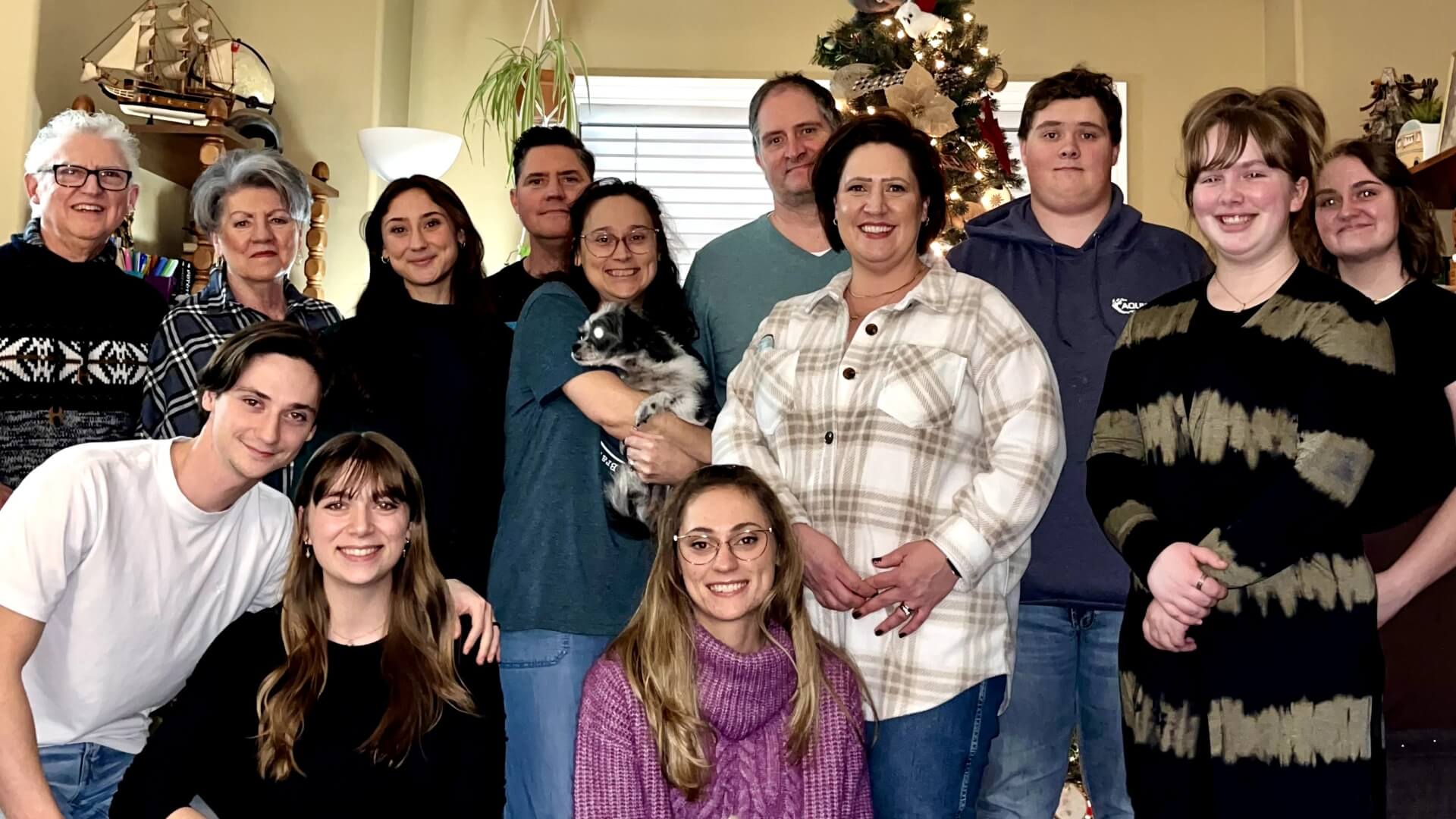
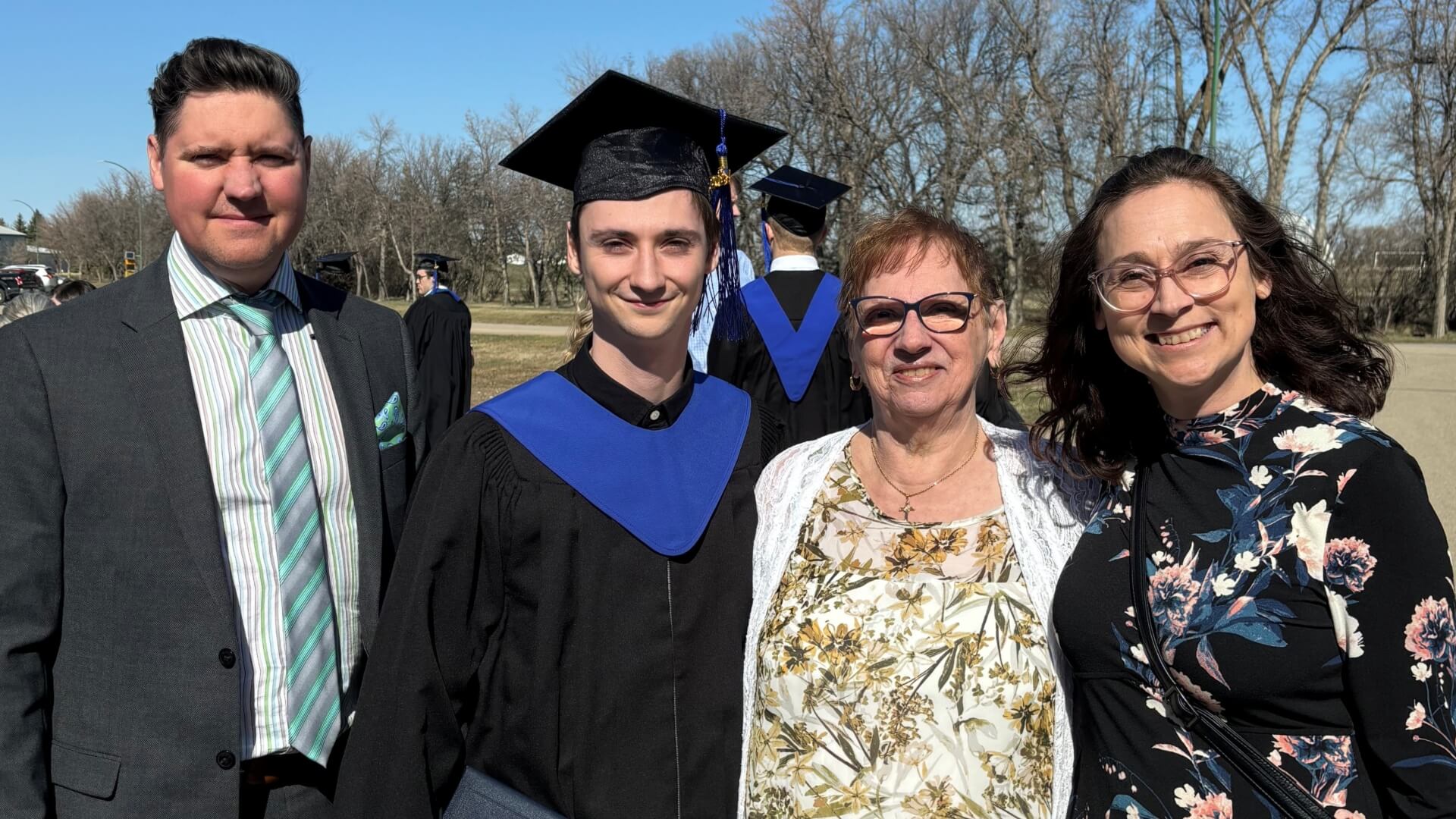
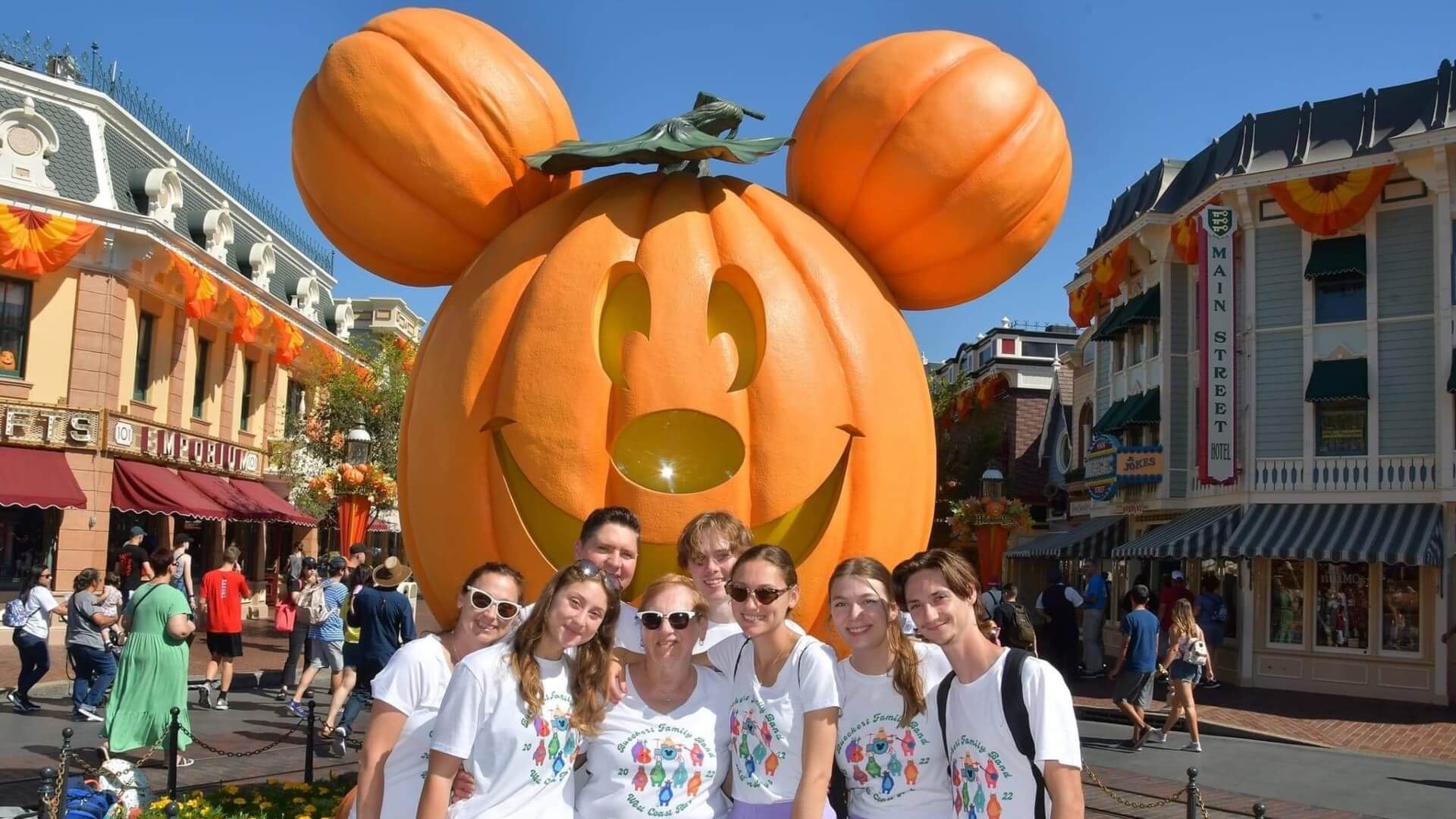
Inspired to help others like herself
Bueckert credits AU accessibility specialist Lisa Boone’s support and encouragement as both crucial to her academic success and to her new career.
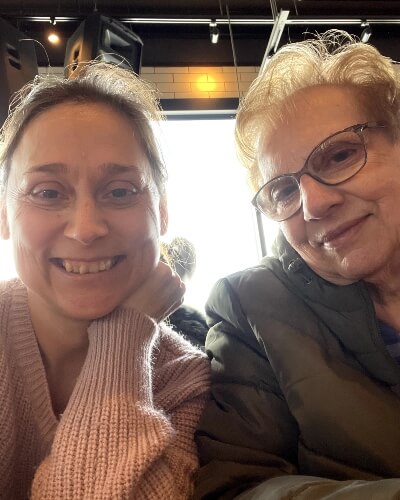
After they had a conversation in late 2023, Bueckert shared that she would love to work for the AU Accessibility Services team and to help open doors through support and opportunity for students like herself.
There was a job opening and Boone encouraged her to apply. “I didn’t even tell my husband,” she says, chuckling. “I checked the box that said I’d be willing to relocate, not thinking I’d get the job.”
But she did. And in a whirlwind, Bueckert, her husband, and her mom uprooted their lives and moved to Calgary, Alta., in February 2024.
Bueckert and her colleagues in the Accessibility Services team help students find what works for their learning needs. “There are a lot of different accommodations. It’s a journey to figure out what works and helps you best.”
Accommodations range from those Bueckert herself uses to others such as assistive technology or being allowed to wear headphones that play white noise or music during exams. She stresses that failing and repeating courses doesn’t make anyone a failure.
“Some of us just take more time to learn certain concepts.”
What’s next
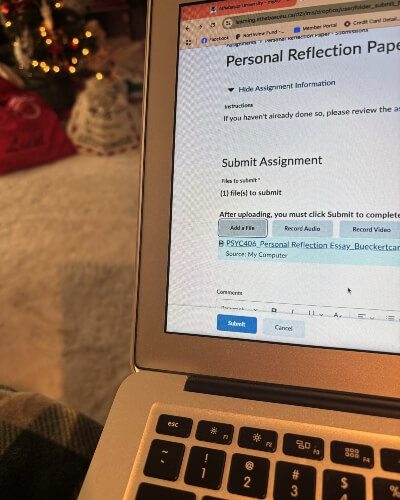
Looking ahead, Bueckert is passionate about removing stigma around accommodations. “They don’t give people an advantage—they level the playing field.”
She plans to apply to AU’s Master of Counselling program so she can continue supporting people, especially those experiencing mental health or learning challenges.
Reflecting on her experiences, she’s proud of how far she’s come and how her journey has inspired her children. “All three of them have had pushed past roadblocks in school,” she says.
“I think it’s helped that they’ve seen me struggle and persevere. I’ve cried, I’ve been mad, I’ve been happy with a 51%. There isn’t just a plan A—there’s plans B, C, D, and E. We can all just keep going and find our own ways.”